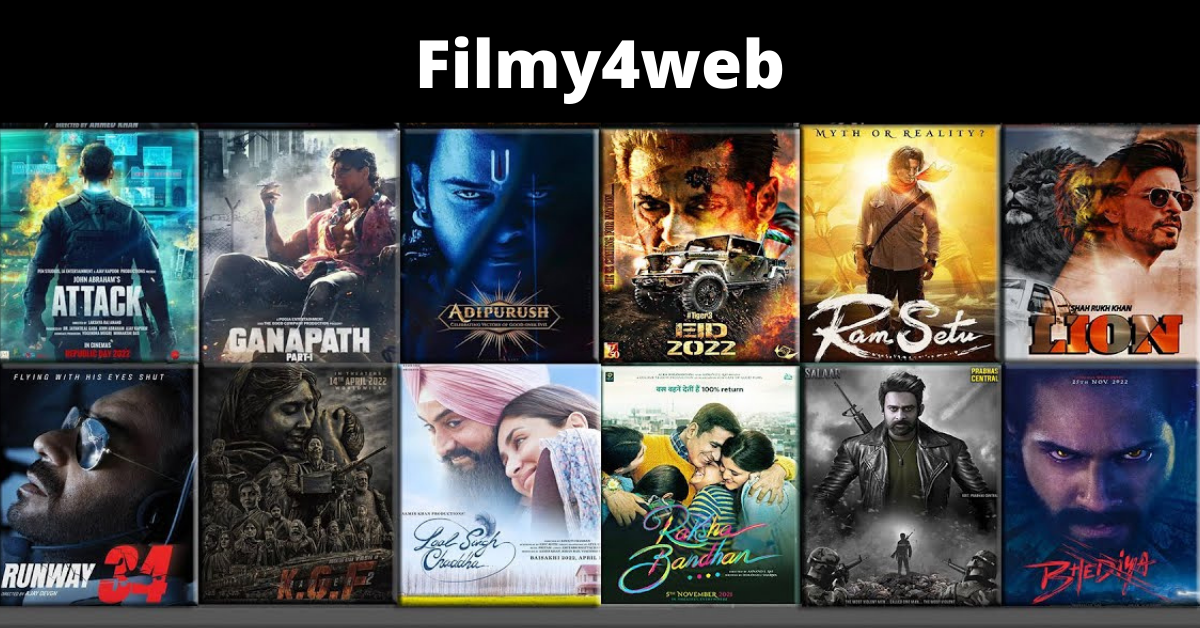Are you tired of endlessly searching for the latest movies and shows online? The digital landscape is overflowing with content, but accessing it legally and safely remains a significant challenge for many viewers. With a plethora of streaming platforms and websites vying for attention, navigating the world of online entertainment can be overwhelming.
The rise of platforms like Filmy4web, Filmy4wap, and Filmyfly reflects a growing demand for readily available movies and web series. These sites, often operating in a legal gray area, offer users a quick fix for their entertainment needs. However, this convenience comes at a cost, both to the film industry and to individual users who risk exposure to malware and other online threats. While services like Justwatch aim to streamline legal streaming options by aggregating content from platforms like Netflix, Amazon Prime Video India, and Hotstar, the allure of free content remains a strong draw for many.
The Indian film industry, often referred to as the "Hollywood of the East," produces a vast array of movies across various genres, including action, thriller, comedy, horror, and drama. These films cater to diverse audiences and are available in multiple languages, including Hindi, Tamil, and Telugu. Websites like Filmibeat provide updates on Bollywood film release dates, trailers, teasers, and reviews, keeping fans informed about the latest happenings in the industry. However, the availability of this content on piracy sites undermines the efforts of filmmakers and distributors to monetize their work through legitimate channels.
- Filmyfly Movie Streaming Guide Find What You Want
- Maricar Reyes Hayden Kho Actress Breaks Silence Scandal Revealed
The problem of online piracy is not new, but its scale and impact continue to grow. Piracy sites like Filmy4web XYZ operate by offering users access to copyrighted movies and television shows without permission. This illegal activity has significant financial consequences for the entertainment industry, with estimates suggesting losses of billions of dollars annually. A 2024 Ernst & Young report indicated that piracy costs the entertainment sector $29 billion each year, with India alone losing 18,000 crore annually. These losses affect not only large studios but also independent filmmakers and content creators who rely on revenue from their work to sustain their livelihoods.
Despite the availability of legal streaming services, many users continue to turn to piracy sites for several reasons. One major factor is cost. Subscription fees for multiple streaming platforms can quickly add up, making it more affordable for some viewers to access content illegally. Another factor is convenience. Piracy sites often offer a wide range of movies and shows in one place, eliminating the need to switch between different platforms. Additionally, some users may struggle to find specific titles on legal streaming services due to licensing restrictions and regional availability.
The landscape of online piracy is constantly evolving, with new sites and methods emerging to circumvent copyright laws. Sites like Filmy4web and Filmy4wap frequently change their domain names and employ various techniques to avoid detection and takedown. They offer content in various formats, including 300MB movies, 480p, 720p, 1080p, 2160p, and 4K resolutions, catering to users with different internet speeds and device capabilities. These sites often feature content from Bollywood, South Indian cinema, Hollywood blockbusters, Tamil movies, and Telugu films, attracting a wide audience with diverse tastes.
- Sone 385 Hikaru Nagi The Rise Of A Japanese Icon
- Sophie Rain Spiderman Video The Viral Sensation Explained New
The availability of content on piracy sites poses a significant challenge to the film industry's efforts to combat illegal distribution. Watermarking and other anti-piracy measures are often ineffective, as pirates quickly find ways to remove or bypass them. Furthermore, the global nature of the internet makes it difficult to track down and shut down piracy sites, as they often operate from countries with lax copyright enforcement. The legal landscape surrounding online piracy is complex and varies from country to country, further complicating efforts to address the issue.
In response to the growing threat of online piracy, the film industry has implemented various strategies, including legal action, public awareness campaigns, and technological solutions. Copyright holders regularly send takedown notices to websites and internet service providers, demanding the removal of infringing content. They also work with law enforcement agencies to investigate and prosecute individuals and organizations involved in online piracy. Public awareness campaigns aim to educate users about the risks and consequences of accessing content illegally, emphasizing the importance of supporting legitimate creators and businesses.
Technological solutions to combat online piracy include the development of more sophisticated anti-copying measures, such as digital rights management (DRM) technologies and forensic watermarking. DRM technologies aim to prevent unauthorized copying and distribution of copyrighted content, while forensic watermarking allows copyright holders to trace the source of pirated material. However, these technologies are not foolproof, and pirates often find ways to circumvent them. Furthermore, the use of DRM technologies can sometimes inconvenience legitimate users, leading to frustration and a desire to seek out alternative sources of content.
In addition to these efforts, the film industry is also exploring new business models that make it easier and more affordable for consumers to access content legally. Subscription streaming services have become increasingly popular, offering users access to a vast library of movies and shows for a monthly fee. These services provide a convenient and cost-effective alternative to piracy, and they are becoming more competitive in terms of content offerings and pricing. However, the increasing fragmentation of the streaming landscape, with more and more companies launching their own platforms, may make it more difficult for consumers to choose the right service and manage their subscriptions.
The rise of online piracy reflects a broader trend of digital disruption that is transforming the entertainment industry. The internet has made it easier than ever for consumers to access content, but it has also created new challenges for copyright holders and content creators. As technology continues to evolve, it is important for all stakeholders to work together to find solutions that balance the interests of consumers, creators, and businesses. This includes strengthening copyright laws, improving enforcement efforts, and developing new business models that meet the needs of a rapidly changing digital landscape.
The challenges posed by sites like Filmy4web, Filmyfly, and Filmy4wap necessitate a multi-pronged approach involving legal action, technological innovation, and consumer education. While legal battles aim to deter illegal distribution and hold offenders accountable, technological advancements focus on securing content and tracking piracy sources. Simultaneously, educating consumers about the ethical implications of piracy and the risks associated with accessing content from dubious sources is vital. Highlighting the availability of legitimate streaming options and their benefits can also encourage viewers to shift away from illegal platforms.
Furthermore, the film industry must continue to innovate in content delivery and pricing models to remain competitive and appealing to consumers. Offering flexible subscription plans, bundling options, and easy access to a wide variety of content can make legal platforms more attractive than piracy sites. Collaborations between streaming services and content creators can also lead to unique and compelling offerings that drive subscriptions and engagement. The key is to provide value and convenience that outweigh the perceived benefits of accessing content illegally.
Ultimately, combating online piracy requires a concerted effort from all stakeholders, including governments, law enforcement agencies, the film industry, and consumers. By working together, these groups can create a sustainable ecosystem that supports the creation and distribution of high-quality content while respecting the rights of copyright holders. This will ensure that the entertainment industry continues to thrive and that consumers have access to a wide range of movies, shows, and other forms of digital content in a safe and legal manner.
The discussion surrounding platforms like Filmy4web, Filmy4wap, and Filmyfly highlights the intricate relationship between content accessibility, copyright laws, and consumer behavior in the digital age. While these platforms offer a tempting solution for accessing entertainment without cost, they also pose substantial risks to the film industry and individual users. As technology advances, it is imperative to develop comprehensive strategies that not only address the immediate challenges of online piracy but also foster a culture of respect for intellectual property and support the creative endeavors that enrich our lives.
Looking ahead to 2025 and beyond, the fight against online piracy will likely continue to be a major focus for the entertainment industry. New technologies, such as artificial intelligence and blockchain, may offer new tools for detecting and preventing piracy. However, pirates will also continue to adapt and innovate, finding new ways to circumvent security measures. The key to success will be a combination of proactive measures, strong partnerships, and a commitment to providing consumers with a seamless and affordable legal entertainment experience.
The future of the film industry depends on its ability to adapt to the changing digital landscape and effectively combat online piracy. By embracing innovation, collaborating with stakeholders, and prioritizing the needs of consumers, the industry can create a sustainable ecosystem that supports creativity, innovation, and economic growth. This will ensure that future generations can continue to enjoy a diverse and vibrant array of movies, shows, and other forms of digital content.
- Aditi Mistry Controversy The Untold Story Reactions
- Vegamovies Alternatives 2024 Best Legal Streaming Platforms Guide


